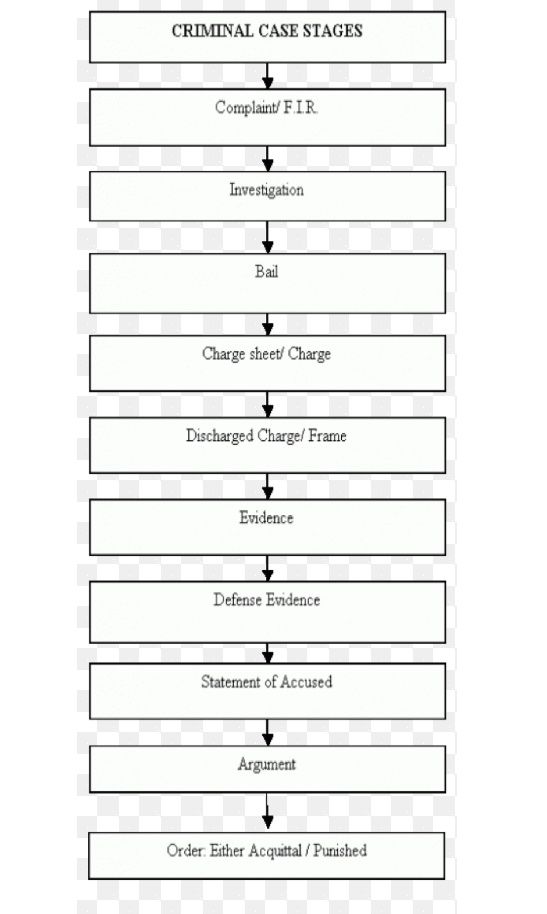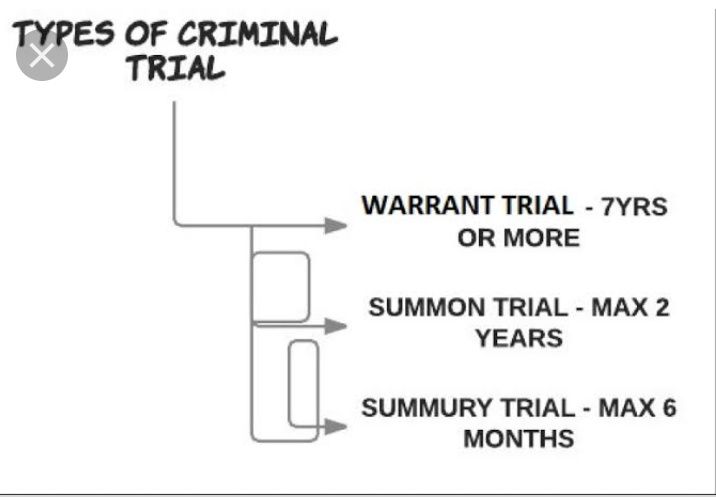Types Of Trial In Criminal Law.
Apr 30, 2019 • 568 views
A crime is any act or omission which is prohibited andpunishable by law. The punishment for such crime is decided by the following procedures of criminal trial.
1) Trial is a proceeding in which the opposing parties in a dispute present evidence and makearguments on the application oflaw before a judge or jury.

Types of Trial :-
There are3 types of trial. They are :-
*Warrant Trial :- 7 years or more than 7years
*Summon Trial :- maximum 2 years
*Summary Trial:- maximum 6 months

Stages of WARRANT TRIAL :-
a. Complaint/FIR :-A FIR is information given by someone (aggrieved) to the policerelating to the commitment of an offense.Investigation.
b. Investigation :-is a collection of evidence by investigating agency.
c. Bail :- Cash or a bond given to the court by a prisoner to secure conditional release from custody
d. Chargesheet :- a formal police record showing the names of each person brought into custody, the nature of the accusations, and the identity of the accusers.
e. Discharge :-the court feels the charges are groundless, will record the reasons for doing so. Framing of Charge :- the court feels that there is a ground of presuming that the accused has committed the offence.
f. Prosecution Evidence :- After the charges are framed, and the accused pleads guilty, then the court requires the prosecution to produce evidence to prove the guilt of the accused.
g. Defense evidence :- In India, since the burden of proof is on the prosecution the defense, in general, is not required to give any defense evidence.
h. Statement of Accused :- Section 313 of the Criminal Procedure Code gives an opportunity to the accused to be heard and explain the facts and circumstances of the case.
i. Judgement:-When the person is convicted, then both sides are invited to give arguments on the punishment which is to be awarded.
Stages of SUMMON TRIAL :-
a. Pre-trial :- In the pre-trial, the process such as filing of FIR and investigation is conducted.
b. Charges :- The accused appears before the court or is brought before the court then the Magistrate would orally state the facts of the offense he is answerable.
c. Plea of guilty :- The accused pleas before the court that he has committed the offence then the court records it.
d. Prosecution and defense evidence :- If the accused does not plead guilty, then the process of trial starts. The prosecution and the defense are asked to present evidence in support of their cases.
e. Judgment :- When the sentence is pronounced in a summons case, the parties need not argue on the amount of punishment given. The sentence is the sole discretion of the judge.
Stages of SUMMARY TRIAL :-
a. Pre-trial
b. Charges
c. Plea of guilty
d. Prosecution and defense evidence
e. Judgment
